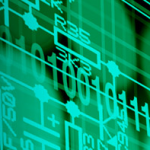In her forthcoming George Mason University Law Review article, “Trolls and Other Patent Inventions: Economic History and the Patent Controversy in the Twenty-First Century,” Professor B. Zorina Khan sheds light on today’s hot-button patent issues and controversies through a detailed exploration of concerns surrounding our patent system throughout its two hundred and twenty-four year evolution into what is today “the most effective economic engine known to man.” Read more
Category: History of Intellectual Property
IP as a Source of Personal and Economic Freedom
CPIP’s Mark Schultz authored an excellent essay today in TechPolicyDaily.com advocating intellectual property as a source of personal and economic freedom. The essay, “A Free Market Perspective on Intellectual Property Rights,” describes parallels between physical property and intellectual property and dispels several denigrating myths about intellectual property’s role in a free market. Read more
The History of Patent Licensing and Secondary Markets in Patents: An Antidote to False Rhetoric
The patent licensing business model is a flashpoint of controversy in the patent policy debates. Individuals and firms that specialize in licensing patented innovation – and companies that purchase patents in order to license them – have come under attack by the President, members of Congress, companies, lobbying groups, and others. Read more
Adam Mossoff on Patented Innovation, Licensing & Litigation (Transcript)
Below is the text of the oral testimony provided by Professor Adam Mossoff to the Senate Commerce, Science and Transportation Committee, the Consumer Protection, Product Safety, and Insurance Subcommittee, in its November 7, 2013 hearing on “Demand Letters and Consumer Protection: Examining Deceptive Practices by Patent Assertion Entities.” Read more
A Brief History of Software Patents (and Why They’re Valid)
 Today, there is significant public debate over patents on the digital processes and machines that comprise computer software programs. These are often referred to as “software patents,” but this is an odd moniker. Aside from the similarly mislabeled debate over “DNA patents,” nowhere else in the patent system do we refer to patents on machines or processes in a specific technological field in this way; for instance, people do not talk about “automobile brake patents” or “sex toy patents” as their own category of patents deserving of approval or scorn. Read more
Today, there is significant public debate over patents on the digital processes and machines that comprise computer software programs. These are often referred to as “software patents,” but this is an odd moniker. Aside from the similarly mislabeled debate over “DNA patents,” nowhere else in the patent system do we refer to patents on machines or processes in a specific technological field in this way; for instance, people do not talk about “automobile brake patents” or “sex toy patents” as their own category of patents deserving of approval or scorn. Read more
Guest Post by Wayne Sobon: A Line in the Sand on the Calls for New Patent Legislation
On June 9-11, the IP Business Congress sponsored by Intellectual Asset Magazine (IAM) hosted a debate on the resolution: “This house believes that the America Invents Act should be a legislative line in the sand and that no more reform of the US patent system is needed.” Read more
Some Recommended Books on Scientists, Inventors and Innovators
I am an avid reader of books about scientists, inventors and innovators. I’ve been particularly happy about the evolution of the narrative nonfiction genre that has occurred since the publication in 1995 of Longitude: The True Story of a Lone Genius Who Solved the Greatest Scientific Problem of His Time, Dava Sobel’s award-winning book on John Harrison’s invention of the first truly mechanical clock. Read more
Patented Innovation and Patent Wars: Some Historical Perspective
[This was originally posted at IBM’s A Smarter Planet Blog on January 11, 2013.]
The America Invents Act (AIA) was signed into law in September 2011, and it is rightly recognized as “the most significant reform of the U.S. patent system since 1836.” Read more
Today’s Software Patents Look a Lot Like Early Pharma Patents
[Cross Posted to Truth on the Market]
The recent New York Times article on the high-tech industry argues that software patents and the current “smart phone war” are a disaster for innovation, and it backs this with quotes and cites from a horde of academics and judges, like Judge Richard Posner, that software patents are causing “chaos.” Read more
The “Patent Litigation Explosion” Canard
[Cross Posted to Truth on the Market on October 18, 2012]
We often hear today that there’s an unprecedented “patent litigation explosion” that’s killing innovation. Last week, the New York Times plied this claim without abandon in its hit piece on high-tech patents. Read more

